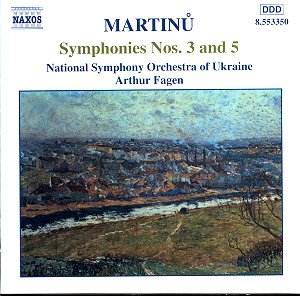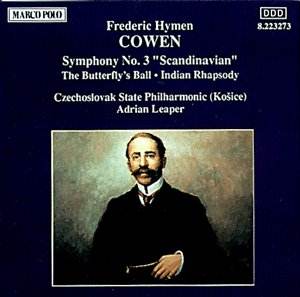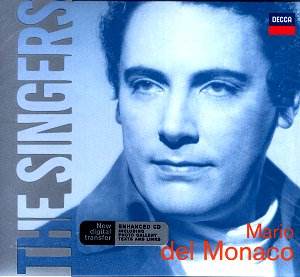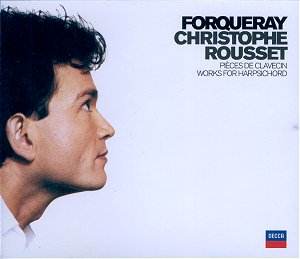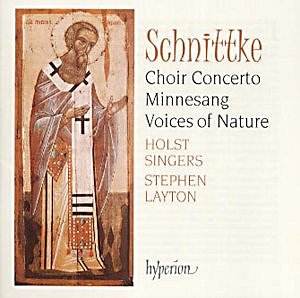 Composer: Alfred Schnittke
Composer: Alfred Schnittke
Works: Concerto for Mixed Chorus (1984/5), Voices of Nature (Golosa prirodi) (1972), Minnesang (1980/81)
Performers: Holst Singers, Stephen Layton
Recording: All Hallows’, Gospel Oak, 13-15 Jul 2001
Label: Hyperion CDA67297
Alfred Schnittke stands as a towering figure in the late 20th-century music landscape, often characterized by his ability to navigate the complexities of the human psyche, particularly within the constraints of Soviet cultural hegemony. The Concerto for Mixed Chorus, composed between 1984 and 1985, emerges as a poignant exploration of spiritual and emotional depth, utilizing texts from the 10th-century Armenian monk Grigor Narekatsi. This work, unlike much of Schnittke’s more avant-garde output, reflects a profound engagement with the Orthodox tradition, a testament to the enduring power of religious and communal expression even amidst oppressive regimes.
The performance by the Holst Singers, under the direction of Stephen Layton, captures the essence of Schnittke’s choral writing, marked by its modal simplicity and emotional resonance. Their sound embodies the best of the British choral tradition, characterized by a clarity and warmth that complements the dense textures of the concerto. The choir’s intonation is generally commendable, although some subtleties of Russian pronunciation do falter, which may detract from the authenticity for the discerning ear. Nevertheless, the overall effect is compelling; the chorus navigates the shifting harmonic landscapes with both precision and depth. Notably, the bass voices produce a rich foundation, enhancing the work’s gravitas and supporting the ethereal upper voices in passages that demand both power and delicacy.
Recording quality plays a significant role in the listener’s experience of this concerto. Hyperion’s engineering showcases the Holst Singers nicely, placing their sound in a resonant space that enhances the choral harmonies without overwhelming the nuances of individual voices. The balance between the choir and the acoustic environment is well-struck, allowing for moments of both introspection and soaring climaxes. The recording of Voices of Nature, while a more slight work, benefits from this same clarity, though its ephemeral nature may not linger in the memory as vividly as the concerto.
In juxtaposition, Minnesang reveals Schnittke’s exploration of medieval German poetic forms and infuses them with contemporary musical language. The treatment of the text here, approached phonetically rather than semantically, speaks to Schnittke’s intent to prioritize sound over meaning in certain contexts. While the work displays a clever construction of textures and crescendos, it lacks the emotional weight found in the concerto. This contrast highlights Schnittke’s ability to traverse different musical landscapes, yet it is evident that the Concerto for Mixed Chorus is his crowning achievement in this collection.
The exploration of spirituality under duress, as expressed in the Concerto for Mixed Chorus, elevates it beyond mere choral repertoire; it stands as a profound statement of resilience and expression. The Holst Singers, while not possessing the authoritative command of other prominent ensembles such as the Svetlanov-led forces, deliver a stirring interpretation that resonates with sincerity and depth. Overall, this recording is a significant contribution to the understanding of Schnittke’s choral works, shedding light on the complex interplay of faith, culture, and artistry in a time of great personal and collective struggle.
